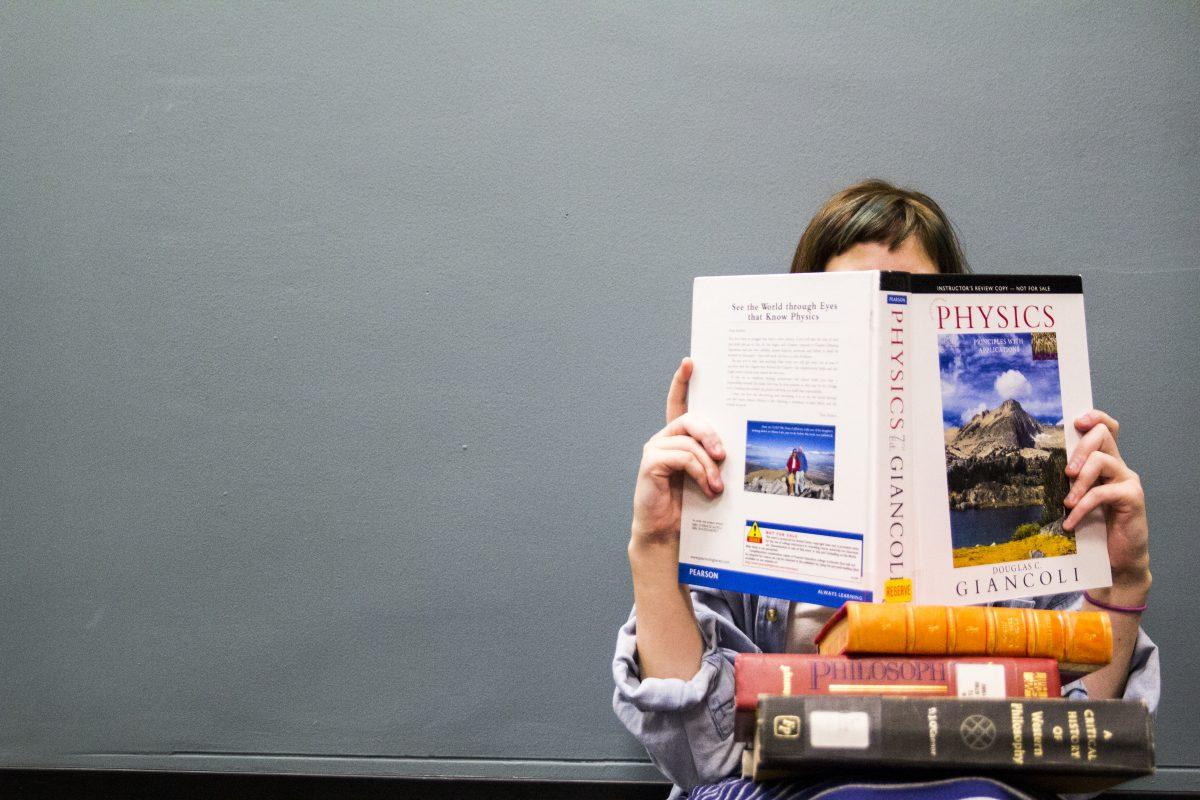Degree declarations tend to lead students down a funneled path toward a specific area of study. Recent news reports have lobbied for the importance of liberal arts degrees in academia.
The emphasis put on students to decide on a specific area of study can place them in either a STEM-focused or liberal-arts-focused academic box. The decision on a major is usually made by asking a series of questions: Do you prefer math or English? Which major will provide the best job security? However, could it be students ask the wrong questions?
Joseph Trullinger, an instructor of philosophy, used an illustration from the German poet Rilke’s book “Letters to a Young Poet.” He referenced the line, “Find out the reason that commands you to write; see whether it has spread its roots into the very depth of your heart…”
Trullinger’s emphasis was to think and discover what individuals cannot go a day without practicing or pondering, and then pursue that in a field of study.
Trillinger said a student should pursue whatever interest he or she holds naturally, regardless of university enrollment or not.
Kelly Marsh, associate professor of English, explained the importance to obtain the life you hope for and not to let potential salary skew a major choice.
“I imagine the most successful people in the STEM field are the ones who are there because they love it so much they are committed to it, and they don’t want to do anything else. It’s commitment that gets you where you want to go. So if you go into a STEM field uncommitted, you’re still not going to reach that goal,” Marsh said. “I would say for those that feel definitely driven toward something, I would not advise letting outside factors change your mind.”
Melanie Loehwing, associate professor of communication, said she believes if students are boxed into exclusive categories such as STEM or liberal arts, it limits the avenues students are able to explore.
“Well I think the mistake people are making is they present it as two completely exclusive options,” she said. “Where you can either study applied areas like the hard sciences or vocational areas where you are just preparing for a particular degree, or you can study the liberal arts.”
In an article posted to openforum.com, Bruna Martinuzzi, author of “Presenting with Credibility: Practical Tools and Techniques for Effective Presentations,” said the current employment trend is to hire college graduates who have explored and versed themselves in both sides of the academic spectrum.
“The trend of employers looking for both field-specific skills and broad skills indicates that employees who combine a liberal arts major — especially an English major — with another major degree, such as business, science or technology, will have a competitive advantage,” she said. “If businesses continue to look for and hire such individuals, they will no doubt have a positive impact on the workplace by creating more diversity in an organization.”
Loehwig said a democracy only works when its citizens are well-rounded, well-educated and intellectually curious. These characteristics come from exploration of all the options a university curriculum has to offer.
“The best kind of undergraduate education is one that exposes students to the broadest possible range of skills and knowledge areas and competencies, and so when we try to say somehow it’s a competition between those two everyone ends up suffering,” Loehwing said. “It doesn’t matter what area you’re getting into, you need to be able to communicate effectively. And to critically evaluate evidence and make arguments.”
Mississippi State University students are offered the mind expanding experience of attendance to a university that offers a vast amount of different majors and concentrations. Exploration of all the classes MSU offers equips students to self-adapt to different careers and opportunities presented throughout life.
Loehwing said many degrees share similar core theories and thought processes, just in a variety of ratios.
“There’s vocational benefits to all of the degree programs, they just exist in different ratios, and the more access students give themselves by exploring all the options the university offers, the better prepared they are in all areas of their life to have better interpersonally relationships, careers and professions and to be better citizens as well,” Loehwing said.
As a student it is important to explore the plethora of options a university offers, combine their interests into a double-major, or concentration that fits their career aspirations, and ask the questions that fit their goals, not just their potential salary.
Categories:
Exploring varied areas of study benefits students after graduation
Alie Dalee
•
November 4, 2013
0
Donate to The Reflector
Your donation will support the student journalists of Mississippi State University. Your contribution will allow us to purchase equipment and cover our annual website hosting costs.
More to Discover







